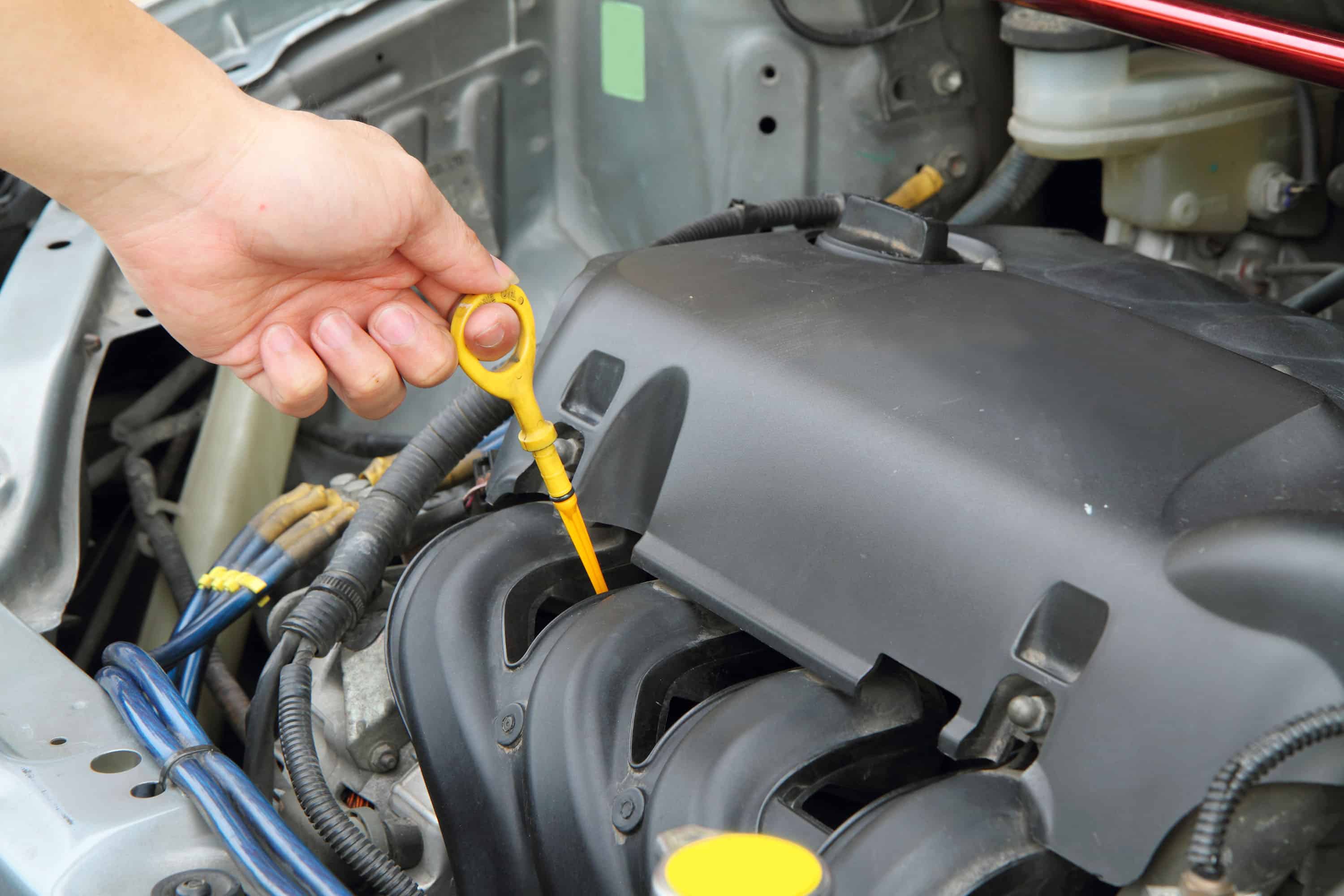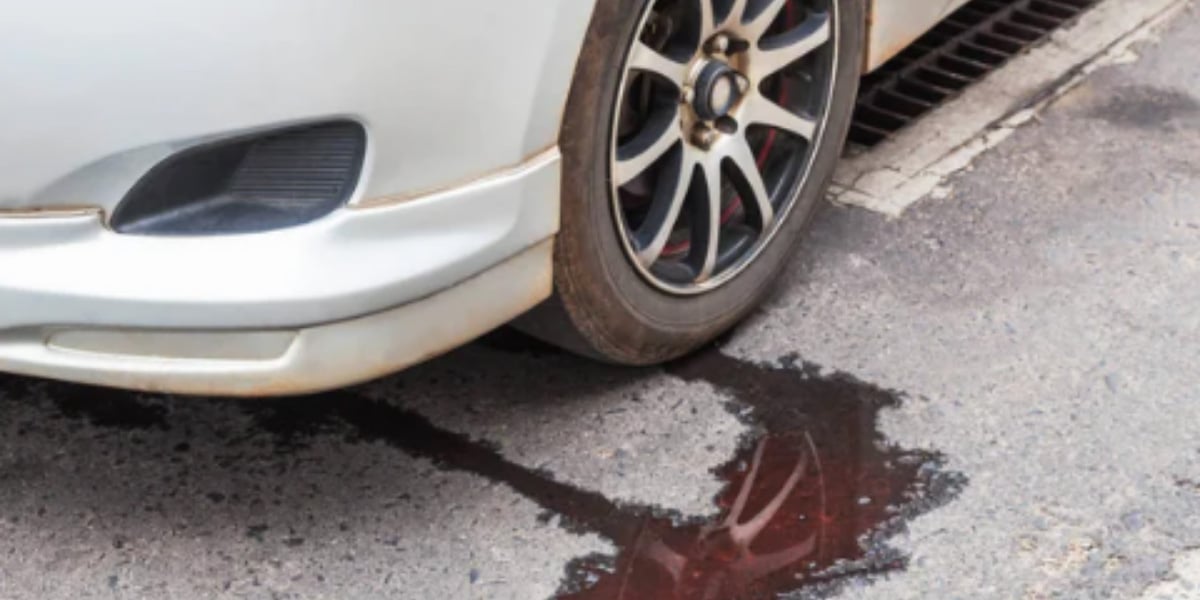Have you ever noticed a puddle of oil under your car and wondered what it means? When car oil leaks, it’s more than just a messy spot in your driveway.
It can signal serious problems that affect your car’s performance and your safety. If you ignore it, you might face costly repairs or even engine damage. You’ll discover exactly what happens when your car oil leaks, why it’s important to act fast, and what steps you can take to protect your vehicle.
Keep reading to make sure your car stays in top shape and avoid surprises down the road.
Causes Of Oil Leaks
Oil leaks in cars happen for many reasons. Understanding these causes helps prevent damage. Oil keeps the engine parts cool and clean. A leak means less oil and possible engine trouble. Let’s explore common reasons for oil leaks.
Worn Gaskets And Seals
Gaskets and seals stop oil from escaping the engine. Over time, heat and pressure wear them out. Old or cracked gaskets allow oil to leak. Replacing them fixes many oil leak problems.
Damaged Oil Pan
The oil pan holds the engine oil at the bottom. Road bumps or debris can dent or crack it. A damaged oil pan leaks oil onto the ground. Repair or replacement is needed to stop leaks.
Loose Or Damaged Drain Plug
The drain plug lets oil out during changes. If it is loose, oil can drip out. Damaged threads on the plug also cause leaks. Tightening or replacing the plug stops the drip.
Faulty Oil Filter
The oil filter cleans engine oil. A bad or loose filter leaks oil. Sometimes, the seal on the filter breaks. Changing the filter regularly prevents leaks and engine issues.

Credit: www.meineke.com
Signs Of An Oil Leak
Noticing signs of an oil leak early helps protect your car’s engine. Oil leaks cause damage if ignored. Watch for clear signs that indicate an oil leak. Catching these signs saves money and avoids bigger problems.
Visible Oil Spots
Look under your parked car for dark, wet spots. Oil spots are usually black or brown. Fresh spots look shiny and wet. Old spots appear dry and crusty. These marks show oil is dripping from the engine.
Burning Oil Smell
A strong, burnt smell near your car means oil may leak onto hot parts. Oil burns when it touches the exhaust or engine. This smell is sharp and unpleasant. It warns of oil leakage that could cause fires or damage.
Low Oil Levels
Check your oil level regularly using the dipstick. Low oil means your engine loses oil faster than normal. Oil leaks cause the engine oil to drop quickly. Running low on oil harms engine parts and lowers performance.
Engine Overheating
Oil helps cool your engine by reducing friction. Low oil from leaks makes the engine hotter than usual. Overheating causes warning lights or steam from the hood. It signals serious trouble that needs quick attention.
Effects On Engine Performance
Car oil leaks affect engine performance in several serious ways. Oil is essential for keeping engine parts moving smoothly. Without enough oil, the engine struggles to work well. This leads to problems that can get worse over time.
Increased Engine Wear
Oil lubricates engine parts, reducing friction and wear. A leak lowers oil levels, causing metal parts to rub together. This friction wears down parts faster. Over time, it can cause parts to fail early.
Reduced Lubrication
Oil spreads inside the engine to protect all areas. Leaks reduce the amount of oil available. Less oil means poor lubrication. The engine heats up more and parts move less smoothly. This lowers engine efficiency and power.
Potential Engine Damage
Low oil levels can cause serious engine damage. Overheating and friction can lead to cracked or broken parts. Major damage may require costly repairs or engine replacement. Small leaks ignored can turn into big problems fast.

Credit: www.miramartransmission.com
Environmental Impact
Car oil leaks harm the environment in many ways. The oil contains toxic chemicals that do not break down easily. This causes long-lasting damage to nature. The impact spreads to soil, water, and living creatures around the leak site.
Even small leaks can cause big problems over time. The pollution affects the balance of ecosystems and can harm plants and animals.
Soil And Water Contamination
Oil seeps into the soil, making it unhealthy. Plants cannot grow well in contaminated soil. Harmful chemicals spread deeper underground and reach water sources. This pollutes rivers, lakes, and groundwater. Clean water becomes unsafe for people and animals. Contaminated water also affects fishing and farming communities.
Harm To Wildlife
Wild animals face serious risks from oil leaks. Birds can get oil on their feathers, losing the ability to fly or stay warm. Fish and amphibians suffer from polluted water. Toxic substances poison their bodies and reduce their numbers. Many animals die or struggle to reproduce because of the pollution. The damage disrupts the food chain and local biodiversity.
Steps To Take When Oil Leaks
Oil leaks can cause serious damage to your car. Acting fast helps prevent costly repairs. Follow clear steps to manage oil leaks safely and effectively.
Checking Oil Levels
Start by checking your car’s oil level. Park on a flat surface and turn off the engine. Wait a few minutes, then pull out the dipstick. Wipe it clean and reinsert it fully. Pull it out again to see the oil level. Low oil means a leak is draining your engine. Add oil if needed, but do not overfill.
Inspecting For Leak Sources
Look under the car for dark oil spots or puddles. Check around the oil filter and oil pan. Examine the valve cover gasket and drain plug area. Use a flashlight to see hard-to-reach spots. Finding the leak source helps decide the next steps. Some leaks are small, others need urgent attention.
Seeking Professional Repair
Visit a mechanic if you find a leak or low oil. Professionals have tools to locate and fix leaks quickly. Repairing early stops engine damage and saves money. Do not drive long distances with an oil leak. Regular oil changes and checks keep your car healthy.

Credit: www.valvolineglobal.com
Preventing Future Leaks
Preventing future oil leaks is crucial for your car’s health. Small leaks can turn into big problems fast. Protect your engine and save money by stopping leaks early. Follow simple steps to keep your car’s oil system tight and clean.
Regular Maintenance
Check your car’s oil level often. Change the oil on time. Regular maintenance finds leaks before they grow. Clean oil helps the engine parts work well. Visit your mechanic for routine inspections. They spot weak spots that cause leaks.
Using Quality Oil And Parts
Use oil that meets your car’s needs. Cheap oil can break down faster and cause leaks. Choose parts made for your car’s model. Good quality parts fit better and last longer. This reduces the chance of oil slipping out.
Timely Seal And Gasket Replacement
Seals and gaskets wear out over time. Old seals crack and let oil escape. Replace them as soon as you see damage. New seals keep oil inside the engine. This stops leaks and protects engine parts.
Frequently Asked Questions
What Are The Signs Of A Car Oil Leak?
Visible oil spots under your car, burning oil smell, and low oil levels indicate an oil leak. Also, engine overheating or smoke may occur.
How Does An Oil Leak Affect Engine Performance?
Oil leaks reduce lubrication, causing engine parts to wear faster. This can lead to overheating, poor fuel efficiency, and engine damage.
Can I Drive With A Leaking Car Oil?
Driving with an oil leak is risky. It can cause engine damage or failure. Check and fix leaks promptly to avoid costly repairs.
What Causes Car Oil To Leak?
Common causes include worn gaskets, damaged seals, loose oil filters, or cracked oil pans. Regular maintenance helps prevent leaks.
Conclusion
Car oil leaks can cause serious engine problems and costly repairs. Low oil levels make the engine work harder and heat up more. This can lead to parts wearing out faster or even engine failure. Spotting a leak early saves money and keeps your car safe.
Check your car regularly for oil spots or smells. Fix leaks quickly to avoid bigger troubles down the road. Taking care of your car helps it run smoothly and last longer. Don’t ignore small signs—they often mean bigger issues. Stay alert and protect your vehicle every day.
Recent Posts
Tired of wrestling with your chains in the freezing cold? Discover how auto-fixing snow chains tighten themselves, giving you the ultimate effortless grip for a safer winter drive.
Struggling with that stubborn, hazy film on your car's glass? Discover the best oil film removers that will give you flawless, crystal-clear vision for a safer drive.

